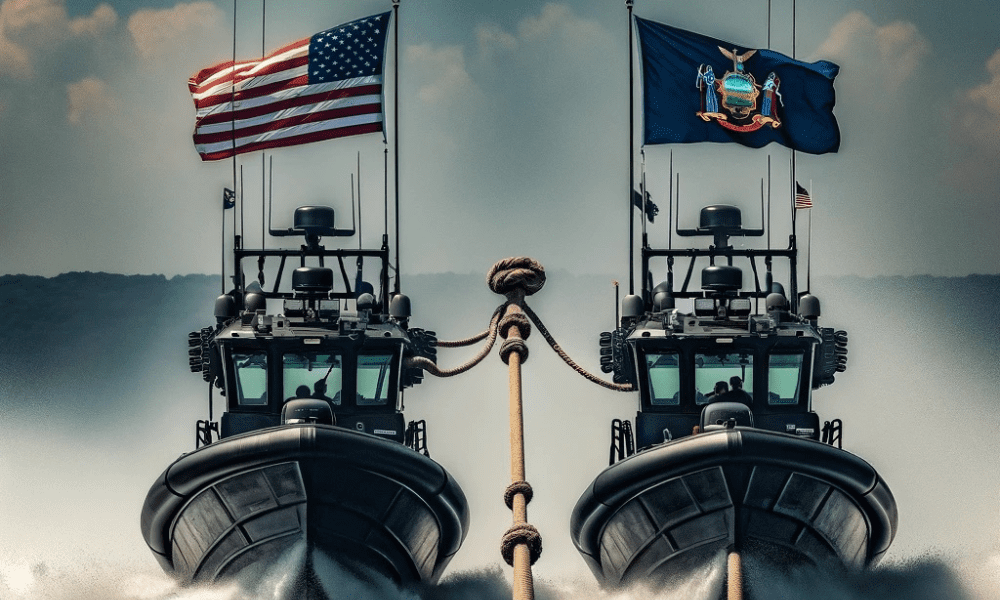Supreme Court weighs in over insurance choice

Supreme Court weighs in over insurance choice | Insurance Business America
Insurance News
Supreme Court weighs in over insurance choice
Kavanagh delivers important win for federal laws over state insurance rules
Insurance News
By
Matthew Sellers
When Phil Pulley’s 70 foot Viking yacht Raiders ran into a submerged object on the intercoastal waterway near Fort Lauderdale in 2019, he immediately turned to his “all risks” policy with UK-headquartered Great Lakes Insurance (GLI) to cover the $300,000 damage bill.
Great Lakes Insurance denied the claim on the grounds that the vessel had not kept its fire suppression equipment up-to-date and so the policy was void. The equipment had not been recently inspected or re-certified. A fire did not occur before, during, or after the incident.
Great Lakes Insurance sued for declaratory relief in the District Court, insisting on the application of New York law as the contract’s choice-of-law clause provided. Raiders Retreat Realty counterclaimed under Pennsylvania law which is far more friendly to insureds.
The District Court sided with Great Lakes, enforcing the choice-of-law provision. However, the Third Circuit vacated this judgment, suggesting that the provision should yield to the strong public policy of the state where the suit was brought, in this case, Pennsylvania’s public policy regarding insurance. They remanded the case to consider whether applying New York law would violate Pennsylvania’s public policy.
The issue was a big one for insurers. Can a policy choose the law of a state that has only tenuous (or even no) connections to the insured, insurer, and vessel insurer to settle legal arguments?
The Supreme Court granted certiorari (it would review the decision of the lower court) to resolve a split in the Courts of Appeals regarding the enforceability of choice-of-law provisions in maritime contracts. The Supreme Court, in a unanimous opinion delivered by Justice Kavanaugh, held that choice-of-law provisions in maritime contracts are presumptively enforceable under federal maritime law, with only narrow exceptions that were not applicable in this case.
The Court rejected the suggestion to adopt a choice-of-law approach from the Second Restatement of Conflict of Laws as unsuitable for maritime cases. They reversed the judgment of the Court of Appeals, affirming the principle of uniform federal maritime law and the enforceability of choice-of-law provisions in maritime contracts.
Justice Thomas concurred, highlighting the flaws in the historical approach to maritime law, particularly critiquing an earlier decision Wilburn Boat Company v. Fireman’s Fund Insurance Company and advocating for the uniform application of federal maritime law. “Today’s decision further erodes Wilburn Boat’s foundation, and rightly so. In light of these decisions, it is not clear what, if anything, is left of Wilburn Boat’s rationale,” he wrote.
Related Stories
Keep up with the latest news and events
Join our mailing list, it’s free!






